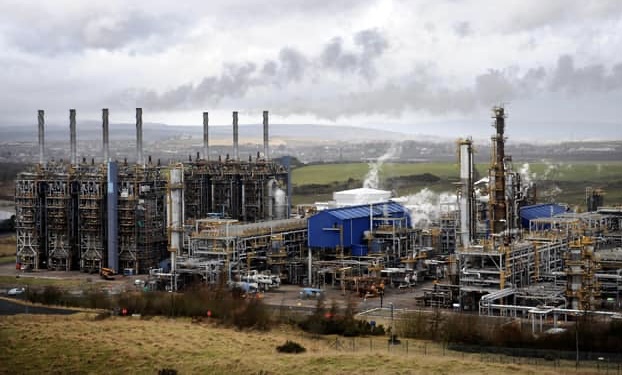KEY POINTS
- ExxonMobil will shut its Fife Ethylene Plant by February 2026, ending forty years of production and placing more than 400 jobs at risk.
- Scottish and UK ministers say they will support affected workers, though both accept the closure stems from economic pressures and commercial realities.
- The shutdown follows the closure of Grangemouth’s oil refinery, intensifying fears of a broader decline in Scotland’s industrial and energy sectors.
ExxonMobil’s decision to wind down operations at its Fife Ethylene Plant in Cowdenbeath has drawn a line under one of Scotland’s most significant industrial landmarks, ending forty years of production and putting more than 400 jobs at risk.
The announcement, delivered on 18 November, has unsettled communities across Fife and renewed concern about the future of heavy industry in Scotland.
The plant, regarded for years as one of Europe’s most advanced ethylene facilities, will close by February 2026.
It has long depended on a steady supply of ethane from the neighbouring Shell-operated Fife Natural Gas Liquids plant, transforming it into ethylene used in plastics, packaging, medical devices and automotive components.
But ExxonMobil said the economic climate, policy direction and market pressures had together rendered the site uncompetitive. Its statement, circulated by several outlets, made plain that high supply costs, tightening margins and ageing infrastructure formed a combination the company no longer believed it could overcome.
Government pledges support as political fallout spreads across Fife and beyond
Around 180 ExxonMobil employees, 200 contractors and dozens of additional supply-chain workers now face the possibility of redundancy.
The shock is not confined to the plant itself; the Mossmorran complex underpins a network of contractors and small businesses that have already been strained by reduced workloads.
Unions had warned in April that the region was on the brink of sweeping job losses, and several industrial firms have since issued their own redundancy notices as conditions continued to tighten.
Scotland’s Deputy First Minister, Kate Forbes, described the closure as a heavy blow, saying ministers had repeatedly pressed the company over the consequences for long-serving workers and the many contractors whose livelihoods depend on the site. She confirmed the creation of a taskforce to help those affected and to map out a realistic future for the area.
In Westminster, industry minister Chris McDonald said the government had examined every option to support the plant but stressed that the decision ultimately lay with the company.
He told MPs that the site would require an estimated £1 billion investment to remain commercially feasible. Although the government had intervened to assist steel, shipbuilding and chemicals firms in the past, McDonald argued that the Fife operation lacked a business case robust enough to justify further public funding.



